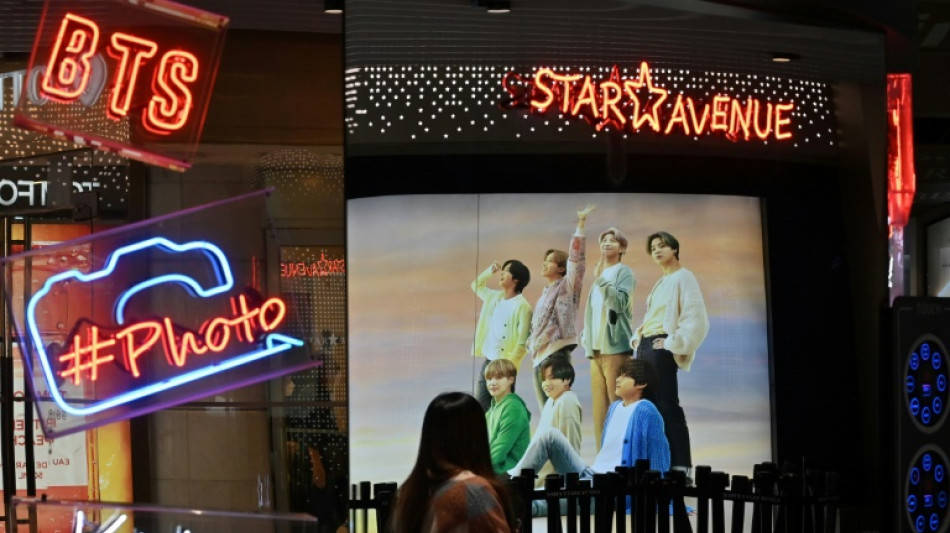
-
 Rio Carnival parades kick off with divisive ode to Lula in election year
Rio Carnival parades kick off with divisive ode to Lula in election year
-
Nepal 'addicted' to the trade in its own people

-
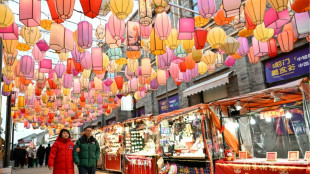 Asian markets sluggish as Lunar New Year holiday looms
Asian markets sluggish as Lunar New Year holiday looms
-
'Pure extortion': foreign workers face violence and exploitation in Croatia

-
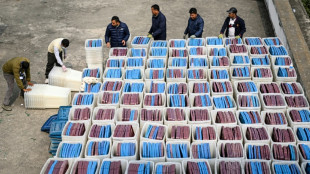 Nepal launches campaigns for first post-uprising polls
Nepal launches campaigns for first post-uprising polls
-
What to know as South Korea ex-president Yoon faces insurrection verdict
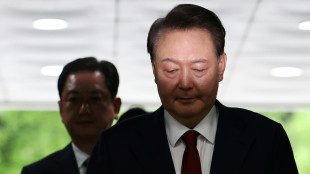
-
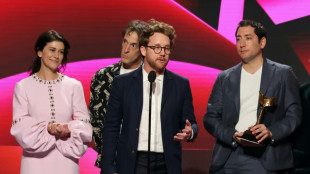 'Train Dreams,' 'The Secret Agent' nab Spirit wins to boost Oscars campaigns
'Train Dreams,' 'The Secret Agent' nab Spirit wins to boost Oscars campaigns
-
Rubio visits Trump's 'friend' Orban ahead of Hungary polls

-
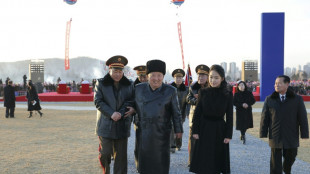 Kim unveils housing block for North Korean troops killed aiding Russia: KCNA
Kim unveils housing block for North Korean troops killed aiding Russia: KCNA
-
Accused Bondi killer Naveed Akram appears in court by video link

-
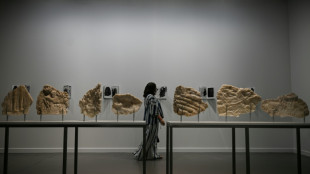 Art and the deal: market slump pushes galleries to the Gulf
Art and the deal: market slump pushes galleries to the Gulf
-
Job threats, rogue bots: five hot issues in AI
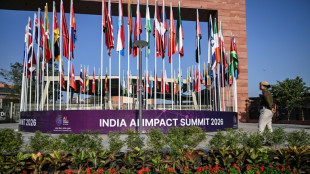
-
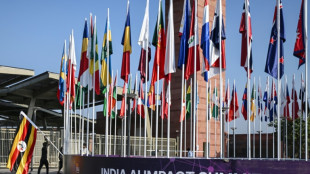 India hosts AI summit as safety concerns grow
India hosts AI summit as safety concerns grow
-
'Make America Healthy' movement takes on Big Ag, in break with Republicans

-
 Tech is thriving in New York. So are the rents
Tech is thriving in New York. So are the rents
-
Young USA Stars beat Stripes in NBA All-Star tourney final

-
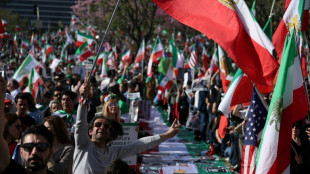 New anti-government chants in Tehran after giant rallies abroad: reports
New anti-government chants in Tehran after giant rallies abroad: reports
-
'The Secret Agent' nabs Spirit Awards win in boost to Oscars campaign
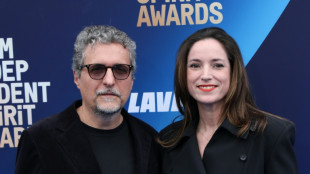
-
 Brignone wins second Milan-Cortina gold as Klaebo claims record ninth Olympic crown
Brignone wins second Milan-Cortina gold as Klaebo claims record ninth Olympic crown
-
Morikawa wins at Pebble Beach despite Scheffler heroics

-
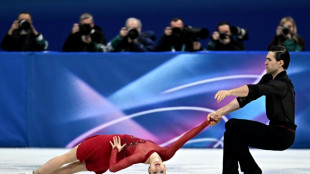 Germany's Hase and Volodin tango to Olympic pairs figure skating lead
Germany's Hase and Volodin tango to Olympic pairs figure skating lead
-
Rayo thrash Atletico who 'deserved to lose' as Betis cut gap

-
 Napoli salvage point after Malen twice puts Roma ahead
Napoli salvage point after Malen twice puts Roma ahead
-
Lyon down Nice to boost Ligue 1 title bid with 13th straight win

-
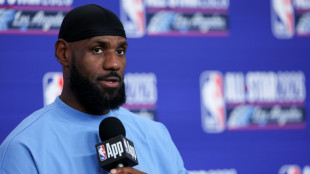 LeBron still unclear on NBA future: 'I have no idea'
LeBron still unclear on NBA future: 'I have no idea'
-
Shelton battles back from brink to beat Fritz, take Dallas crown

-
 Great Britain celebrate best-ever Winter Olympics
Great Britain celebrate best-ever Winter Olympics
-
Brignone wins second Milan-Cortina gold as Klaebo claims record ninth

-
 Arteta concerned over Arsenal's mounting injury list
Arteta concerned over Arsenal's mounting injury list
-
In fuel-starved Cuba, the e-tricycle is king

-
 Shaidorov still spinning after outshining Malinin for Olympic gold
Shaidorov still spinning after outshining Malinin for Olympic gold
-
Late Gruda goal grabs Leipzig draw versus Wolfsburg

-
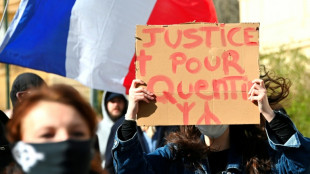 'Ultra-left' blamed for youth's killing that shocked France
'Ultra-left' blamed for youth's killing that shocked France
-
Canada wrap up perfect Olympic ice hockey preliminary campaign

-
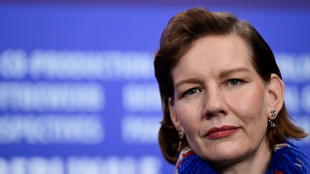 Historical queer film 'Rose' shown at Berlin with call to action
Historical queer film 'Rose' shown at Berlin with call to action
-
Wales' Tandy tips hat to France after Six Nations hammering

-
 Quadruple chasing Arsenal rout Wigan to reach FA Cup fifth round
Quadruple chasing Arsenal rout Wigan to reach FA Cup fifth round
-
2026 S-Class starry facelift

-
 What they said as India beat Pakistan at T20 World Cup - reaction
What they said as India beat Pakistan at T20 World Cup - reaction
-
Away-day blues: England count cost of Scotland Six Nations defeat

-
 'Wuthering Heights' debuts atop North America box office
'Wuthering Heights' debuts atop North America box office
-
Rayo thrash Atletico who 'deserved to lose'

-
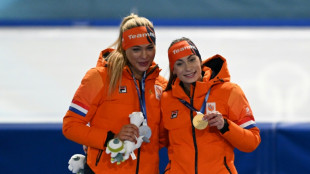 Kok beats Leerdam in Olympic rematch of Dutch speed skaters
Kok beats Leerdam in Olympic rematch of Dutch speed skaters
-
India rout bitter rivals Pakistan by 61 runs at T20 World Cup
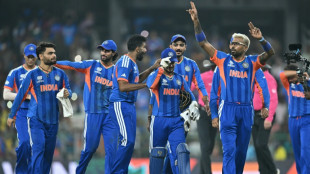
-
 France run rampant to thrash sorry Wales 54-12 in Six Nations
France run rampant to thrash sorry Wales 54-12 in Six Nations
-
Rio to kick off Carnival parade with ode to Lula in election year

-
 Britain celebrate first-ever Olympic gold on snow after snowboard win
Britain celebrate first-ever Olympic gold on snow after snowboard win
-
Third time lucky as De Minaur finally wins in Rotterdam

-
 Leeds survive Birmingham scare to reach FA Cup fifth round
Leeds survive Birmingham scare to reach FA Cup fifth round
-
Klaebo wins record ninth Winter Olympics gold medal


Hello Hallyu: why is South Korean culture sweeping the globe?
It's won Oscars. Its television shows and K-pop stars dominate global charts. Its leading novelist just won the Nobel literature prize. How did South Korea become such a global cultural powerhouse?
AFP takes a look at what we know:
What is Hallyu?
From the late 1990s, Korean dramas and K-pop idols started gaining traction in neighbouring Asian countries like China and Japan, marking the start of Hallyu, or the Korean Wave.
It wasn't until Psy's breakout hit "Gangnam Style" that Hallyu hit the West.
In the decade that followed, "Babyshark" broke YouTube records, K-pop megastars BTS topped the charts, Bong Joon-ho's "Parasite" won an Oscar, and Squid Game became Netflix's most-watched non-English television show.
Cultural exports were worth some $13.2 billion to South Korea in 2022, more than home appliances or electric cars -- but the bulk of that was made up of video games, such as Battlegrounds Mobile which are wildly popular in India and Pakistan.
The government is targeting $25 billion by 2027 -- so expect more K-culture, especially in new markets such as Europe and the Middle East.
Why South Korea?
For Oscar-winning "Parasite" director Bong Joon-ho, the key to the East Asian country's cultural success is that everyone has lived through "dramatic times".
The 1950s Korean War -- which left Seoul locked in conflict with its nuclear-armed northern neighbour -- military dictatorship, sweeping economic transformation, and a democratic transition.
In the South, many have "experienced turbulence and extreme events," Bong has said. As a result "our movies can't help but different."
South Korea "provides creators with ample inspiration and stimulation. It's such a dynamic and turbulent place," he said.
Renowned South Korean filmmaker Park Chan-wook had a similar answer when asked for the secret of his country's cinematic success. "Why don't you try living in 'dynamic Korea?'" he replied.
And K-literature?
Turning contemporary history into art is what 53-year-old novelist Han Kang, who won the literature Nobel Thursday, excels at.
Han has spoken of the transformative experience of learning about a 1980 massacre in her native Gwangju, when South Korea's then-military government violently repressed a democratic uprising.
Han said her father showed her photographs including the scattered bodies of victims, and citizens lining up to donate blood in the chaos -- which later inspired her book "Human Acts".
While many South Korean authors have delved into the themes of the country's traumatic past, Han established her own "striking literary aesthetic" while addressing challenging subjects, said Oh Hyung-yup, a Korean literature professor at Korea University and literary critic.
Women first?
South Korea has some of the worst rates of female workforce participation among advanced economies, but for cultural exports women have been trailblazers.
Han's Booker-winning novel "The Vegetarian", which follows a woman who stops eating meat, is regarded as a landmark ecofeminism text. But it was outsold internationally by Cho Nam-Joo's "Kim Ji-young, Born 1982" about a married South Korean woman who quits her job to raise her child.
As the first Asian woman to win a Nobel for literature, it is appropriate that Han Kang's work addresses violence in ways that male authors have not in the past, Kang Ji-hee, a South Korean literary critic, told AFP.
"Han Kang reinterpreted this type of internal struggle," Kang said, documenting behaviours "that were previously considered to be simply passive, and gave them a whole new meaning."
So was it the government?
With the growing success of K-culture exports across the board -- from film to food, with Korean staples like kimchi and bibimbap soaring in popularity overseas -- it seems like part of a masterplan.
But while the South Korean government has ploughed millions into supporting cultural industries, experts say success has come largely despite, not because, of the state.
When former-president Park Geun-hye was in power from 2013 to 2017, Nobel-winner Han was one of over 9,000 artists "blacklisted" for criticising her government, along with Bong.
Some government initiatives, for example the government-affiliated Literature Translation Institute of Korea (LTI Korea), may have paid off, helping to bring works like Han's to a global audience.
But a growing number of translators, who are more adventurous with their choice of works, have also helped to bring edgier offers to the international market.
Success also breeds more success, cultural export-wise: The reading habits of K-pop megastars have boosted K-literature.
When BTS member Jungkook was seen reading the self-help book "I Decided to Live as Me" it sparked a sales frenzy, with hundreds of thousands of copies flying off shelves.
But Bong also believes that his compatriots' hard drinking habits helped spur creativity.
"We are a very workaholic country. People work too much. And, at the same time, we drink too much. So every night, very hardcore drinking sessions and everything is very extreme."
B.Finley--AMWN